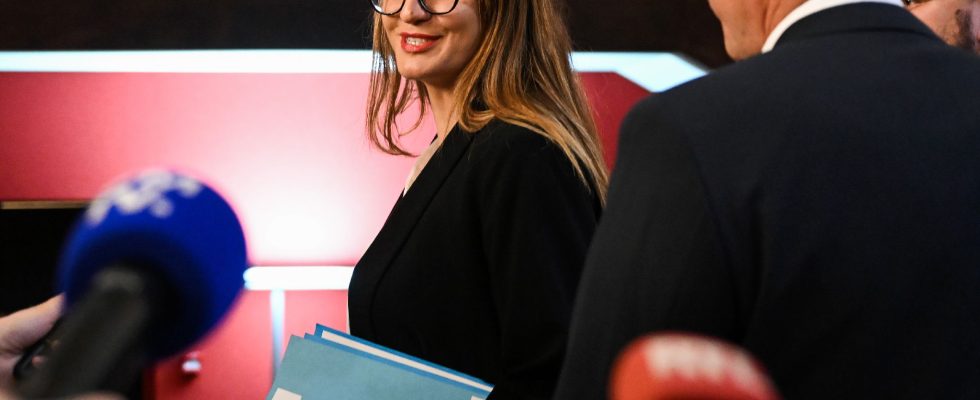A fiasco. This is the word that comes to mind when consulting the report of the general inspection of the administration on the Marianne Fund, published on July 6. A “serious deficiency” in the call for projects, an “opaque process” then various “shortcomings” and “superficial follow-up” by the ministry… hateful and separatist” on social networks, in 2021. A “double fiasco”, echoes the report written by Senator Jean-François Husson (Les Républicains), this July 4, president of a recent fact-finding mission on the use of this fund. “Amateurism”, “drift”, “irresponsibility”, “faulty follow-up”… The words are just as severe.
Basically, both senators and senior civil servants blame Marlène Schiappa, then Minister Delegate for Citizenship, as well as the Interministerial Committee for the Prevention of Delinquency and Radicalization, her administrative armed wing, a pile of little things that shape careless management of public subsidies. Some arrangements in the selection of projects, choices at the head of the client, insufficient controls. Everything happened as if this Marianne fund had only been the dressing of a ministerial communication on separatism. But a dressing for two million euros, all the same. Nothing very glorious. Beyond the personalities in question, this pitiful affair tells how eagerly politicians sometimes make big announcements, present big projects, to appear “in action”. When Nicolas Sarkozy was President of the Republic, some observers had invented the theorem “a news item, a law”, to summarize this way that the former head of state had to propose a new text for each shocking event. The objective was to show its consideration of reality. From 2004 to 2011, five laws on sex criminals were passed.
“An attack, a subsidy”
Officially, Nicolas Sarkozy seems to have carried his method into his political retirement. The government is now careful not to react to the most shocking news items by immediately proposing a new law. The fact remains that the subs or the Covid have each time given rise to new texts, with measures that will often be made permanent after the crisis – sometimes wisely, of course. The “one attack, one subsidy” theorem has taken over. This variant allows you to go quickly, to show that you are committed, while being careful not to highlight the heavy political weapon that is the anti-terrorist law.
It is striking to note that in 2017, the same actors had delivered the same conclusions on the same subject. “It’s a fiasco”, wrote senators Esther Benbassa (EELV) and Catherine Troendlé (LR), about the activity of a deradicalization center, at an annual cost of 2.5 million euros. euros. Already, the parliamentarians, who had taken up an information mission on de-radicalization policies, pointed to the “rush” post-attacks of 2015, a “financial windfall” for associations, up to 8 million annual euros, and “shortcomings” in the “control of actors”. Marlène Schiappa would have been inspired to read them before launching her fund.
